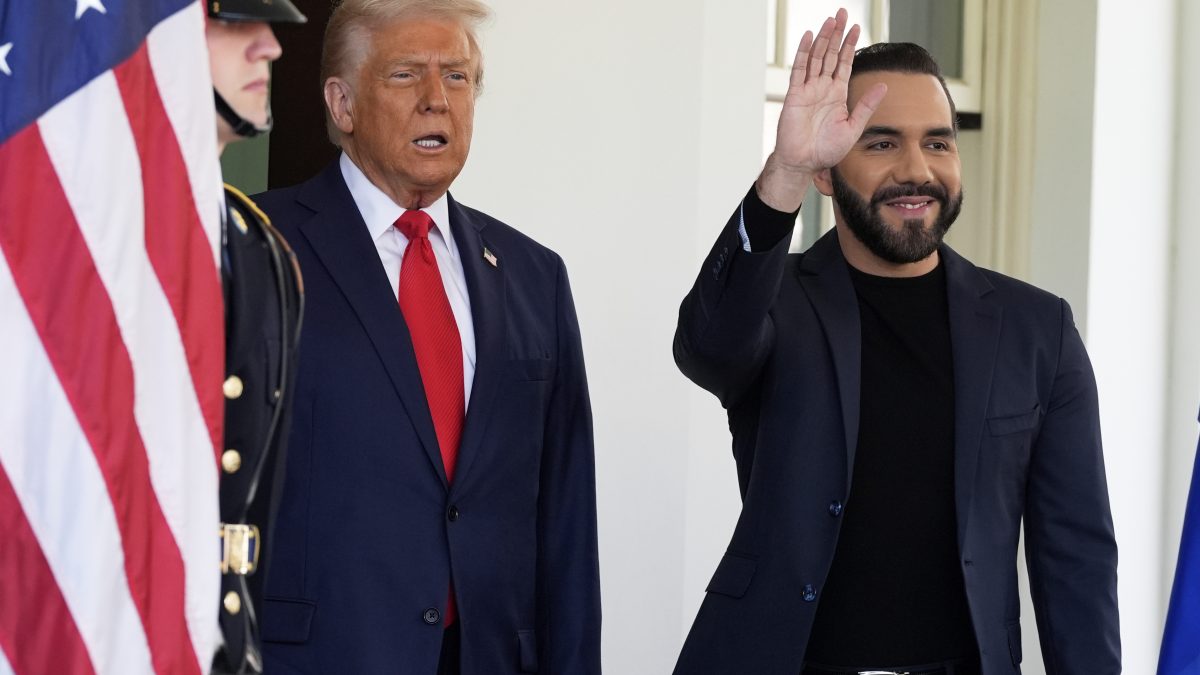Nayib Bukele, President of El Salvador, has become a prominent yet controversial figure in Latin America. Calling himself “the world’s coolest dictator” , he vowed to bring security, modernisation, and transparency to a country once plagued by gang violence and corruption. Bukele became the 81st President of El Salvadore in 2019 and got re-elected in the 2024 election. While his tough security reforms have sharply reduced crime, his leadership style has raised concerns about El Salvador’s democratic norms.
Bukele’s meeting with US President Donald Trump on Monday (April 14) drew global attention, highlighting a rare convergence of two influential leaders with similar political narratives.
Here are five things you need to know about the “world’s coolest dictator”.
1. Crackdown on gangsters
In March 2022, at the request of Bukele, the Legislative Assembly proclaimed a state of exception . This gave sweeping powers to the security forces and suspended several constitutional rights, such as freedom of assembly and access to legal counsel.
Since its implementation, according to the Washington Office on Latin America (WOLA) , more than 110,000 people were put behind bars and 85,000 were detained. The crackdown has led to a significant reduction in homicide rates and weakened notorious criminal organisations like MS-13 and Barrio 18.
Impact Shorts
More Shorts2. Decline in homicide rate
Before Bukele, El Salvador was widely known as the ‘murder capital of the world’.
In 2015, according to Foreign Policy , the country had a homicide rate of 105 per 100,000 people, a staggering figure that represented the cumbersome and dangerous life in the country.
However, after Bukele implemented his state of exception, the homicide rate drastically dropped to under 2.4 per 100,0000. This placed El Salvadore among the safest countries in Latin America.
Bukele attributes this success directly to his hardline security measures. In an interview with Tucker Carlson, he said, “El Salvador is the safest country in Latin America. That’s not a miracle. That’s the result of political will.”
3. Despite popularity, Bukele faces accusations of authoritarianism
The United Nations have reported widespread human rights abuses and violations of fundamental rights under Bukele’s state of exception. “We understand the serious challenges posed by gang violence, and the State’s duty to ensure security. However, it is the State’s duty to do so in compliance with international human rights law,” Spokesperson Marta Hurtado told journalists in Geneva. Despite this, he continues to enjoy approval ratings exceeding 80 per cent among Salvadorans.
Moreover, Bukele’s administration has removed presidential term limits —an unusual move for democratic nations— which has fuelled concerns and speculation about the erosion of democratic norms in El Salvador.
4. Pioneer of Bitcoin
In 2021, Bukele made El Salvador the first country to adopt Bitcoin, aiming to modernise the economy and attract foreign investment.
“It will bring financial inclusion, investment, tourism, innovation and economic development for our country,” Bukele said in a post on X.
However, this move faced significant challenges. Despite government incentives, not many people were able to adapt Bitcoin. Approximately, 88 per cent of Salvadorans were not able to use Bitcoin in 2023, according to a survey done by the University of Central America’s public opinion institute.
5. Prison megaproject
As part of his aggressive anti-gang campaign, Bukele launched the construction of the “Terrorism Confinement Center” in 2022. This is said to be one of the world’s largest prisons with a capacity to hold up to 40,000 inmates .
However, footage released by the government showed thousands of prisoners being shirtless, shackled, and guarded. The United Nations has condemned such a state of affairs. Liz Throssell, a spokesperson for the UN Office of the High Commissioner for Human Rights, criticised the actions of El Salvador’s security forces during the gang crackdown, describing them as an “unnecessary and excessive use of force”.
)